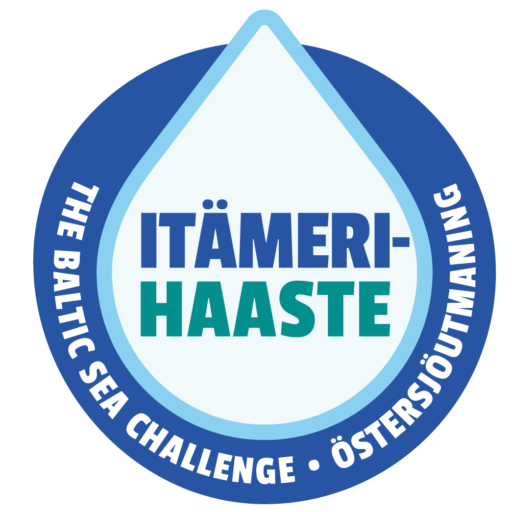6+1 ways to help the Baltic Sea
The Baltic Sea Challenge is a network for organizations. As an individual, you can tell your related parties about the Baltic Sea challenge. Could you promote your workplace or hobby to sign the Baltic Sea Commitment for example? Individual choices are also important. Together we are more! See below for tips on what you can do for the Baltic Sea today.

Do the Baltic Sea Act today!
1. Eat fish caught in the Baltic Sea
The condition of the Baltic Sea can be improved by eating sustainably caught wild fish such as bream, vendace, or perch, because fishing removes nutrients and thus curbs the eutrophication of the sea. At the same time, you support local work.
2. Take expired and unnecessary medicines to the pharmacy. Avoid pain gels with diclofenac.
Pharmaceuticals increase the chemical load when they end up in the environment. Waste-to-energy plants or wastewater treatment plants are not designed to treat pharmaceutical waste. Diclofenac used in pain gels is very harmful to marine life and cannot be sufficiently removed from wastewater at treatment plants. The substance ends up in the sewer and further into the sea when washing from the skin. Read more about the effects of drug residues.
3. Borrow trash tongs from the library and collect trash from your neighborhood
Did you know that stormwater is usually discharged untreated into the sea? Every cigarette butt or rubbish dropped into a rainwater well ends up directly in the Baltic Sea, where it breaks down into microplastics and harmful substances.
Do the Baltic Sea deed and collect the rubbish that gets in your way in a bag. Please also remember to sort your own waste correctly! Find out which library near you can borrow trash tongs.
4. Check the labels of chemicals found at home and choose products with the Nordic Swan Ecolabel in the store
When used correctly, chemicals are useful and can be found at home, for example, in detergents, cleaning products and cosmetics. Do you know what the different warning signs mean? Find out how to dispose of products and empty packaging without causing harm to the environment. Products with the Nordic Swan Ecolabel do not contain chemicals that are harmful to the environment. Read more about chemicals.
5. Holiday nearby!
Transport is a major source of microplastic emissions and an accelerator of climate change. Swap a trip to a cottage in a private car for a relaxed bike ride in the archipelago or along the coast. See nice excursion destinations that are easily accessible by public transport in Helsinki or in Turku.
6. Report a blue-green algae situation or an invasive alien species sighting at your local beach
Observations made by citizens are an important channel for gathering information on the state of the Baltic Sea and its coasts. Blue-green algae blooms have become more common due to eutrophication of the Baltic Sea and climate change. Report your blue-green algae sighting. Invasive alien species impoverish biodiversity. It is always a good idea to report invasive alien species, such as Japanese rose and garden lupin, so that control actions can be targeted correctly. Read more or report your observations of alien species.
7. Celebrate Baltic Sea Day on the last Thursday of August
Baltic Sea Day is an annual celebration launched by the John Nurminen Foundation in honor of our home sea. The goal of the day is to inspire people to enjoy our local sea and take concrete actions for it.
